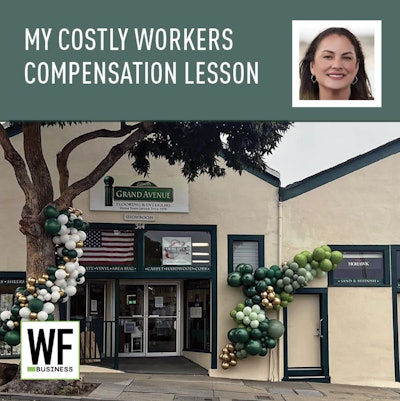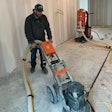
Like many flooring businesses, I hire subcontractors to sub out extra labor for floor installations. All the subcontractors I’ve worked with make their own hours, own their trucks and tools, and have their own licenses and liability insurance, so I’ve never classified them as employees. I’ve never had an issue with classification until 2022 when I needed to get new workers compensation insurance for my employees after my previous insurance provider stopped writing new policies in California. I thought getting new insurance would be straightforward, but it resulted in a costly and time-consuming employee misclassification battle.
I went with State Farm and had no problems until two years later when they did an audit and stated I owed them $8,500 because one of our subcontractors we had been working with the past few years didn’t have workers comp, and thus, they were considering him my employee. This particular subcontractor doesn’t have workers comp because California allows independent contractors to file an exemption from getting workers comp if they work for themselves and do not have any employees. Under my previous insurance provider, this subcontractor was never classified as my employee, and State Farm never informed me that I would be charged if one of our subcontractors did not have workers comp insurance. All of my other subcontractors have workers comp and were not classified as employees by State Farm.
Since the subcontractor in question owns his own business, has his own license, sets his own hours and works for other stores besides mine, I tried to dispute the charge and misclassification. But after getting the runaround from the insurance company with no luck in disputing the charge or figuring out why they claimed him as my employee, I looked for other answers. I found that California updated its independent contractor law in 2020 to create a stricter test for determining if someone is an employee or not. The law severely limited who in the state could be classified as an independent contractor, which is likely what triggered the misclassification of my subcontractor.
But even with the stricter test, our subcontractor fits all the requirements to be legally deemed an independent contractor. An additional state law was passed in 2022 that requires licensed contractors to show proof of workers comp regardless of whether or not they have employees. But that requirement doesn’t go into effect for flooring contractors until 2026, so it shouldn’t have been a determining factor in my misclassification case.
Never in those two years did State Farm inform me that changes to state law were made that would impact my insurance. But after explaining to State Farm, as well as their third-party administrator Sedgewick, that these laws shouldn’t result in my subcontractor being classified as my employee, I wasn’t able to overturn the charge. At one point I went so far as to call State Farm under the pretense that this subcontractor got hurt—and they said he was not covered because he was not an employee. I also contacted Farmers Insurance and biBerk to see if they would insure the subcontractor as my employee, and they said they would not charge me, as he would be deemed an independent contractor. It seemed like State Farm was the issue—and they weren’t going to budge on this.
In the end, I had to pay the $8,500 to keep my workers comp, which is a lot of money for a small business just getting started. I spent over 85 hours of my time trying to research the issue and dispute the misclassification. It has taken away so much time, money and resources I could be using to get business. The experience was so stressful that as soon as I could, I canceled State Farm and went with a different insurer.
I think flooring store owners should look more into their workers comp insurance policies regarding subcontractors so they are not hit with an exorbitant bill like I was. I also advise business owners to stay informed about their state’s independent contractor laws so they are not blindsided by changes. I’d like to see people in the industry reach out to their state representatives to overturn these laws, as they make it difficult for businesses to hire subcontractors.

































